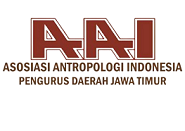Guide for Authors Online Submission Privacy Statement Manuscript Template Cover Letter and CTA Template
Publishing Policy
Research Ethics Policy
If the Authors’ work involves live subjects (human or animal), you must provide an appropriate ethical statement when submitting your paper. The most suitable location for this is normally the methods section of the manuscript. However, to preserve anonymity in double-blind peer-reviewed journals, please do not add the ethical statement to the manuscript; instead, you should declare it in the Cover Letter and Copyright Transfer Agreement (CLCTA).
In double-blind peer-reviewed journals, please do not add the ethical statement to the manuscript; instead, please complete the relevant section on the submission system. This information is not shared with reviewers and therefore does not need to be anonymized. If a reviewer feels they need to see an ethical statement, they are advised to contact the journal to discuss.
Informed Consent Policy
Authors must ensure that informed consent has been duly obtained from all human subjects prior to their participation in the research. The informed consent procedure, including how consent was acquired and recorded, should be described in detail in manuscripts.
- Privacy and Autonomy: Authors should respect the privacy and autonomy of individuals participating in their studies.
- Identifying Information: If the manuscript includes identifying information, explicit consent must be obtained from the individuals concerned.
- Vulnerable Populations: Special care must be taken to obtain appropriate consent from vulnerable groups, such as minors or individuals with impaired decision-making capacity.
Failure to comply with these requirements may result in the rejection or retraction of the manuscript. The Indonesian Journal of Social Sciences prioritizes the protection of human research subjects and emphasizes the importance of ethical considerations in research involving human participants.
Data Sharing Policy
The Indonesian Journal of Social Sciences (IJSS) is committed to fostering transparency, openness, and collaboration in scientific research. To support these values, authors are encouraged to share their research data whenever possible.
Funding Policy
A statement on funding must be included in the manuscript if the authors receive any funding for their manuscript. All sources of financial support for the project should be disclosed. The most suitable location for this is normally the acknowledgement section of the manuscript. However, to preserve anonymity in double-blind peer-reviewed journals, please do not add the funding statement to the manuscript; instead, you should declare it in the Cover Letter and Copyright Transfer Agreement (CLCTA).
Conflicts of Interest
A statement on conflict of interest must be included in the manuscript if authors receive any support that might be construed to influence the results or interpretation of their manuscript. All sources of financial support for the project should be disclosed.
Authorship and Collaboration
The names of authors listed in a paper should be limited to those who have made a significant contribution to the report. Only those who have made significant contributions should be listed as co-authors. Others who have participated in certain substantive aspects of the work must be acknowledged or listed as contributors. It is the duty of the corresponding author to ensure that all appropriate co-authors and no inappropriate co-authors are included on the paper. All co-authors must approve the final version of the paper and agree to the version of the paper before submission.
Changing Authorship Policy
Once the author(s) submit the manuscript, the editors usually do not consider authorship changes. Authors must carefully evaluate the authorship list and author order before submitting the manuscript. The policy of this journal around authorship changes:
- The manuscript must have a list of all authors, and the submission system must include their information details.
- Author names should only be added, removed, or rearranged in the authorship list before acceptance and with the journal editor's permission.
- When a corresponding author requests a change in authorship, they must give the journal editor a written confirmation from all authors—including those being added or removed—that they agree with the addition, removal, or rearrangement, along with the justification for the request.
- The journal editor will only take into account the addition, removal, or reorganization of authors after acceptance if there are special circumstances.
- The manuscript's publication may be put on hold when a request for a change in authorship is being examined. If the paper has already been published, any requests for changes to the authorship that are authorized by the journal editor will result in a corrigendum.
- Any unauthorized changes to the authorship might lead to the article being rejected or, if it has already been published, retracted.
Multiple or Redundant
Authors should not publish manuscripts describing essentially the same research output in more than one journal or primary publication. A similar manuscript should not be submitted to more than one journal concurrently as this constitutes as unethical publishing behavior and is unacceptable.
Plagiarism and Double / Multiple Submissions
Authors should submit only original work that is not plagiarized. Appropriate software may be used by the editorial office to check for similarities of submitted manuscripts with existing literature. Inclusion of fraudulent or knowingly inaccurate statements are unacceptable. Work and/or words from other publications must be appropriately cited or quoted. The manuscripts should not be published anywhere else or being considered elsewhere. We will ban the author(s) who have done such practice(s).
The Use of Generative AI and AI-Assisted Technologies
AI-assisted technologies and generative AI should only be utilized by the author(s) throughout the writing phase to enhance the manuscript's language and readability. Generative AI and AI-assisted technologies may provide authoritative-sounding output that may be inaccurate, partial, or prejudiced. Therefore, it must be used with human monitoring and control, and the results should be carefully evaluated and revised. The work's contents are ultimately the authors' responsibility and accountability. Since authorship entails duties and actions that may only be attributed to and carried out by people, writers are not permitted to name or acknowledge AI and AI-assisted technologies as authors or co-authors on the publication.
The Indonesian Journal of Social Sciences (IJSS) does not accept ChatGPT and other Large Language Models (LLMs). Authors should provide documentation on using LLMs in the Methods section. IJSS does not accept using AI-generated images and videos for publication because of unresolved legal and research integrity concerns, except for images from contracted agencies or those referenced in AI-specific pieces. IJSS does not accept the creation or modification of pictures in submitted publications using generative AI or AI-assisted techniques. That may cover the figure, which may be enhanced, obscured, moved, eliminated, or introduced. Brightness, contrast, and color balance adjustments are permissible, provided they don't obfuscate or remove any information from the original.
When submitting the manuscript, if generative AI is used, authors are required to disclose the use of generative AI in scientific writing. The declaration does not cover basic tools like checking grammar, spelling, and references. If Authors do not use AI, there is no need to add a statement. Authors must clearly state the use of any AI tool in the Methods section, specifying the tool used and its role in the manuscript development.
Correction and Retractions
Although it is best to prevent mistakes in the publication record before publishing, journals should take the initiative to put in place a procedure for handling any corrections or retractions that may occur. There are several reasons why revisions and retractions may be required, including:
- An error within the publication process
- Author request
- Report by reader or external party
Classification and terminology vary. However, it could be useful to divide corrections and retractions into three main groups to get the policy formation discussion started:
- Minor Corrections: minor errors that don't significantly change the published work's substance, such as typos and metadata errors.
- Substantive Corrections: significant errors that affect the information, such as adding or removing meaningful sentences or paragraphs or changes to figures or data.
- Retractions: discharge of entire works (partial retractions should be avoided and treated as a substantive correction). Consult COPE Retraction Guidelines for more details.
Advertising Policy
We do not accept advertisements in this journal.
Reporting Policy
Authors should state their results clearly, honestly, and without fabrication, falsification, or inappropriate data manipulation. The methods used in the work should be clearly and unambiguously described so that the findings can be repeated and confirmed by other researchers. If anyone discovers fabrication, falsification, or data manipulation in an article published by our journal, please submit a report with the journal title, volume, issue number, paper ID, paper title, and page number. Then email the journal at ijss@journal.unair.ac.id.
Complaints Policy
This approach relates to complaints against the IJSS editorial staff's policies, procedures, or actions. We encourage complaints because they provide opportunities for improvement, and we strive to respond promptly, courteously, and constructively. Your complaint should include the journal title, volume, issue number, paper ID, paper title, and page number. Complaints about editorial content should be submitted as soon as feasible after publication, preferably in writing and via email to ijss@journal.unair.ac.id.





















